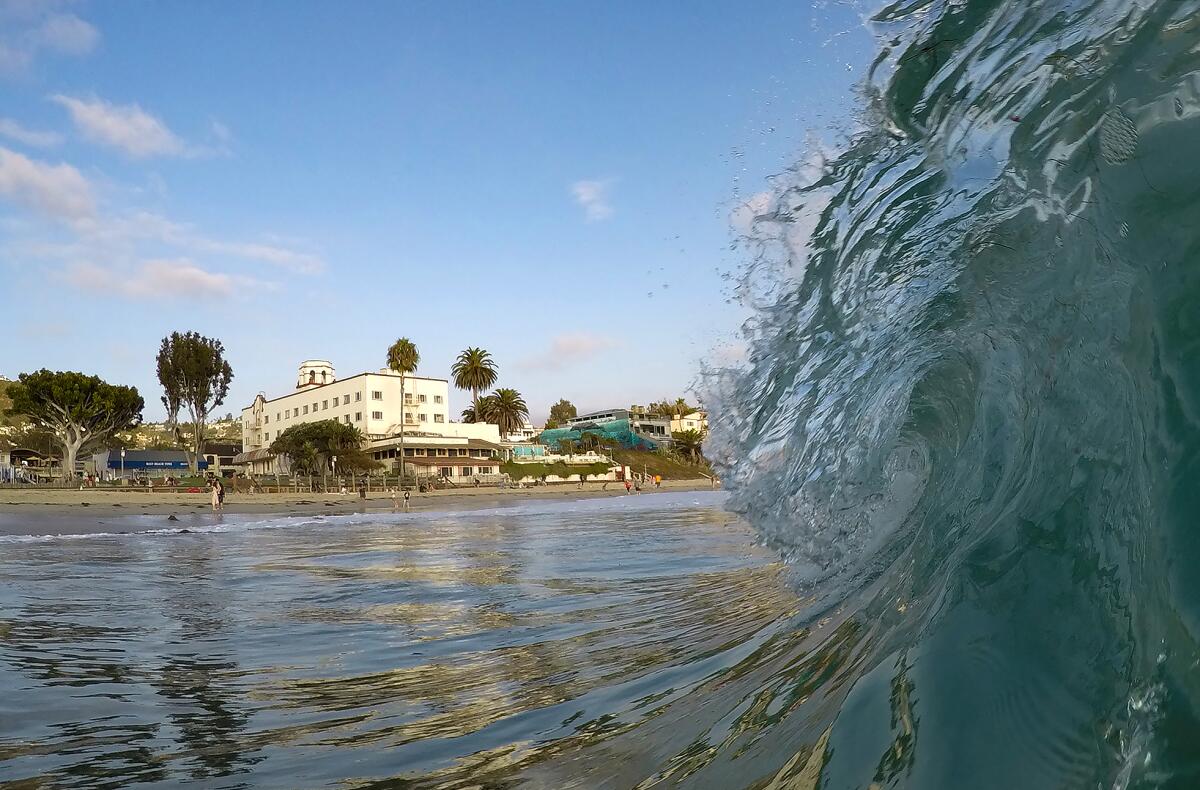Conservationists file lawsuit against Laguna Beach, alleging violations of state environmental law

- Share via
Historic conservationists filed a lawsuit Monday in Orange County Superior Court against the city of Laguna Beach, alleging that the city violated state environmental law when amending its historic preservation program last summer.
The amendment, adopted by the City Council in August, updates the program and defines “owner consent” as a criterion for eligibility for the local historic register. It also removes any reference to the 1981 inventory, which was included in the 1989 historic preservation ordinance. Additionally, definitions and incentives were expanded in the ordinance. Efforts to update the program began in 2013.
Also adopted was a resolution revising the city’s general plan, residential design guidelines and local coastal program. The state Coastal Commission will need to certify the amendment to the latter.
At the time, conservationist groups argued that the voluntary nature of the program could mean the destruction of the town’s history. Property owners pushed back, pointing to the prohibitive costs of maintaining a historic property and current city processes.
The lawsuit, filed by the Laguna Beach Historic Preservation Coalition, Preserve Orange County and Village Laguna, contends that owner consent is irrelevant to historic merit and puts properties on the register at risk of substantial alteration or demolition.
The case has been assigned to Judge William Claster.
In the lawsuit, plaintiffs allege that the actions taken by the City Council violates the California Environmental Quality Act, which defines historical resources — buildings, structures or archaeological resources — as part of the environment and are subject to review.
Projects that may cause a substantial “adverse” effect on the significance of a historical resource is considered a project that may have an effect on the environment.
Plaintiffs allege that the city “abused its discretion and failed to act in the manner required by law” when it approved the changes based on an initial study and adopted a negative declaration, which states that the planned program will not have a significant adverse effect on the environment, without adopting mitigating measures.
“Property owners with plans to clear valuable coastal lots for new buildings are likely to oppose rather than consent to historic status despite the unique historic value of existing buildings,” the lawsuit reads. “Deserving properties will not be identified and owners will not be required to explore options for the feasible, cost-effective expansion and restoration of historic homes.”
“Instead, buildings will be remodeled or demolished without consideration of their historic qualities,” the complaint continues. “Laguna’s historic preservation program will thereby facilitate needless, irreversible damage to its charming beach-town character and historic legacy.”
Plaintiffs are seeking a peremptory writ to order the city to set aside all actions and approvals as related to the revised historic preservation program until the city conducts an “adequate and complete” EIR process and identifies and adopts feasible mitigation measures and alternatives to lessen environmental impacts.
They are also asking the court to prohibit the city from furthering action on the program while the petition is pending and asks for the plaintiffs’ costs, expenses and attorney’s fees.
“The city strongly disagrees with the claims in the lawsuit and is disappointed that those behind the lawsuit fail to understand the effect of the update,” Laguna Beach Community Development Director Marc Wiener said on Thursday.
Wiener said the city will continue to comply with the California Environmental Quality Act and other applicable laws, adding that the city’s amended historic preservation program still affords the protection of historic resources as required by the state. He added that the revised program also offers protection to properties on the city’s historic register along with the state or national register.
“Most importantly, a protected historic resource shall also encompass a property or structure for which the city is mandated by law to treat as a historic resource based on substantial evidence in light of the whole record,” Wiener said.
“With over 30 public hearings, public meetings and public workshops held since 2015 to review the numerous various options for the historic preservation program, the city’s process entailed robust public participation and was more than thorough,” Wiener added. “The establishment of many benefits to historic properties resulted from this extensive public engagement.”
No hearings are currently scheduled for the case.
All the latest on Orange County from Orange County.
Get our free TimesOC newsletter.
You may occasionally receive promotional content from the Daily Pilot.








